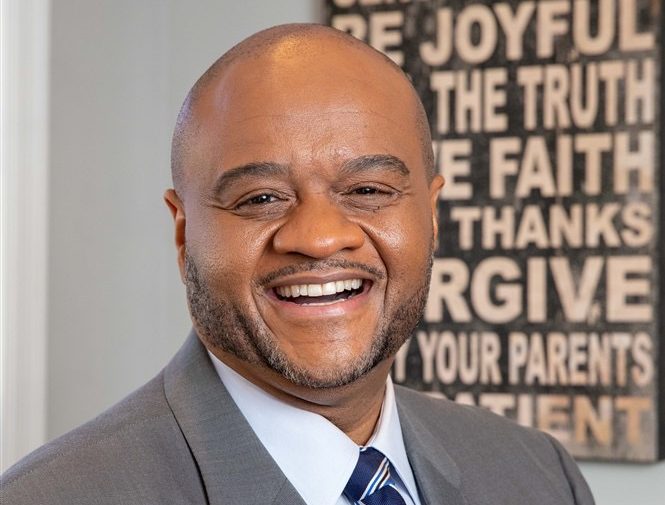Does the Tom Tom Founders Festival, now in its 11th year, really need an introduction? The fest’s aged a lifetime in a decade, from its quixotic first years—“like, what even is Tom Tom?”—to its formative middle years, and its wizened old age.
The 2023 version’s vision, “Future Forward,” is appropriately expansive, with ample breadth to explore what founder Paul Beyer calls its three “wings”: 1) The second annual Downtown Mall Block Party; 2) an eclectic community partner program of sports, dance, and tours; and 3) the festival’s central pillar, a three-day conference for discussing big ideas.
The festival’s foundation since its 2012 beginnings, the conference portion will feature more than 100 speakers this year, organized around three themes: health and wellness, technology, and justice. C-VILLE Weekly recently spoke with five featured presenters about the topics they’ll tackle and the role of festivals like Tom Tom in building community.
Dr. Kwasi Adusei
Researcher, Center for Psychedelic Therapy & Research
Conference Section: Conscious City
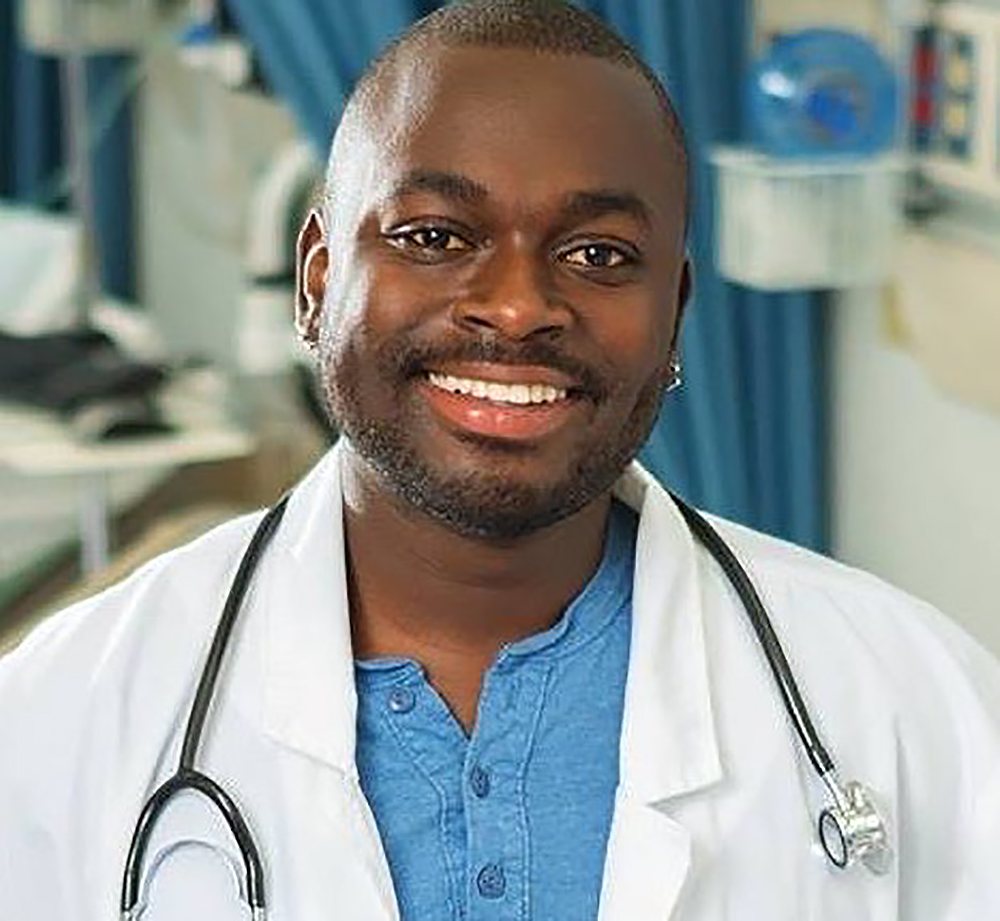
C-VILLE Weekly: You’re an expert on plant-based medicines. What can people expect from the Conscious City portion of the Tom Tom conference?
Kwasi Adusei: We’ll address consciousness, psychedelics, and community. How does heightened consciousness through psychedelics relate to community and the mainstream? We’ll talk about how psychedelics have affected individual lives, but also our sense of connection to community and nature.
What is your own background in medicinal psychedelics?
I work with psychedelic medicine in a clinical capacity, trying to provide access by working with therapists. We primarily focus on access to ketamine as an alternative to anti-depression drugs. I started as a community organizer, trying to integrate people’s own psychedelic experiences through community service and working toward psychedelic harm reduction. But I also wanted to have a foot in the medicalized sphere and bridge those things together.
When most people hear “plant-based medicine,” they think cannabis. Is that not part of your work?
Right now, I am working primarily with ketamine, but also MDMA and psilocybin. People are mostly using these medicines in the community, outside the medical context. As a provider and being informed around the modalities of access to plant medicine, I see them as a conduit to spiritual growth. Even before psychedelics were medicalized, people were seeing their ability to reduce depression and anxiety. They are medicines that can connect us to others, that can open us to ourselves and to our relationships.
What are the legal and practical hurdles for your work?
Ketamine is a Schedule 3 drug, MDMA is going through phase three clinical trials, and psilocybin will likely follow MDMA at the federal level. At the state level, we’re seeing a lot of decriminalization, the basics being that the cops aren’t coming after you. That opens up places for developing communities. So, if the majority of psychedelic use is already happening at the community level, what we need now is education to reduce the risk of harm and maximize the benefits of these tools. There are hundreds of psychedelic societies—community-driven organizations—popping up all over the world. The question is, how do we integrate all these experiences in a meaningful way?
What do you want folks to take away from Conscious City?
One of the risks we run is that many people may have a psychedelic experience and not get better right away. It is even possible that they will first get worse, because the experience gives them access to the root of their problems. So it is necessary that folks have places where they can progress through the experience. The destination is not psychedelics themselves, but rather the path to community.
Tony Wilkins
Investor and Executive Coach, Standing Oaks Venture Partners
Conference Section: Technology for Good
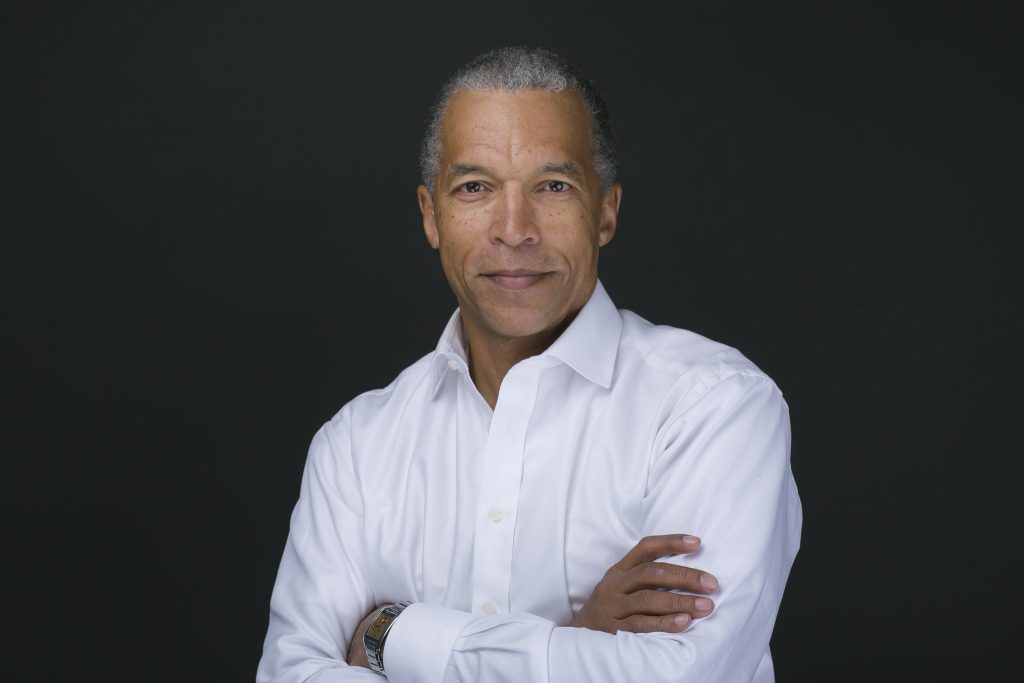
C-VILLE Weekly: You’re a startup investor. What’s the secret to your success?
Tony Wilkins: If anyone says they have a 100 percent batting average in investing, they are either lying or they’ve made one investment. I expect to lose a lot, but I don’t lose the lesson. I focus on why people are doing what they’re doing and how they’re doing it. When you hear about startups, you hear about the companies that went from $1 to $100 million. You don’t hear about the hundreds of thousands of companies that failed. Investing is a long-term activity, and you can get better over many years. Then one day you wake up, and you realize you’re kind of good at it. As an executive coach, I try to shorten the learning curve and help people avoid avoidable mistakes. Like I say on LinkedIn, “I help people make better decisions.”
What’s trending in the world of startup investing?
This is a space that has been unavailable to the masses for a long time. The legal structure was set up to where only wealthy people, by being accredited investors, could invest in companies that want to build the American dream. But Obama’s Jumpstart Our Business Startups Act made it so anyone could invest in startups.
Is there a success story from your past that illustrates your strategy?
The first big success I had in early-stage investing, I met a woman at a conference. In 20 seconds, she told me enough to make me think, “I will invest in your company.” She lived in New York, and I lived in Chicago, but it was a business that just made sense to me. She tried to make it work on her own dime, and it took a long time for us to come to an agreement, but I wound up being the only investor for eight years. We made a lot of mistakes, but we solved a lot of problems, and we found some clients who loved us. It was all about her determination and timing. We went from wondering if we were going to be able to make payroll to having enough money in the bank to change the trajectory of both our lives.
New York and Chicago are big markets. How does your experience relate to a city like Charlottesville?
I know Charlottesville through my work with the CFA Institute, where I’ve been a charter holder for 32 years. The thing that C’ville doesn’t know about itself is that it is the perfect environment for startups. First, success in early stage investing is incredibly dependent on collaboration, people talking to one another and not holding information close to the vest. In places like San Francisco, people keep information to themselves. The second thing is the great big University of Virginia. The most successful startup companies are those anchored by a large university—an environment or spirit where people are curious and innovative and interested in solving problems. And the third thing is capital, which has become more democratized. Let me say it a different way: capital, collaborations, and colleges. Charlottesville has all three.
How can startup investing contribute to better communities?
The important thing in startup collaboration is talking to people that don’t look or sound or hang out with you. If you talk to the same people all the time, your ability to come up with new ideas will be limited. I try to force people to take ideas from folks they wouldn’t normally talk to. That’s why we need to talk about diversity in this space.
Marty Weiner
Founding Engineer, Pinterest, and Former CTO, Reddit
Conference Section: Technology for Good
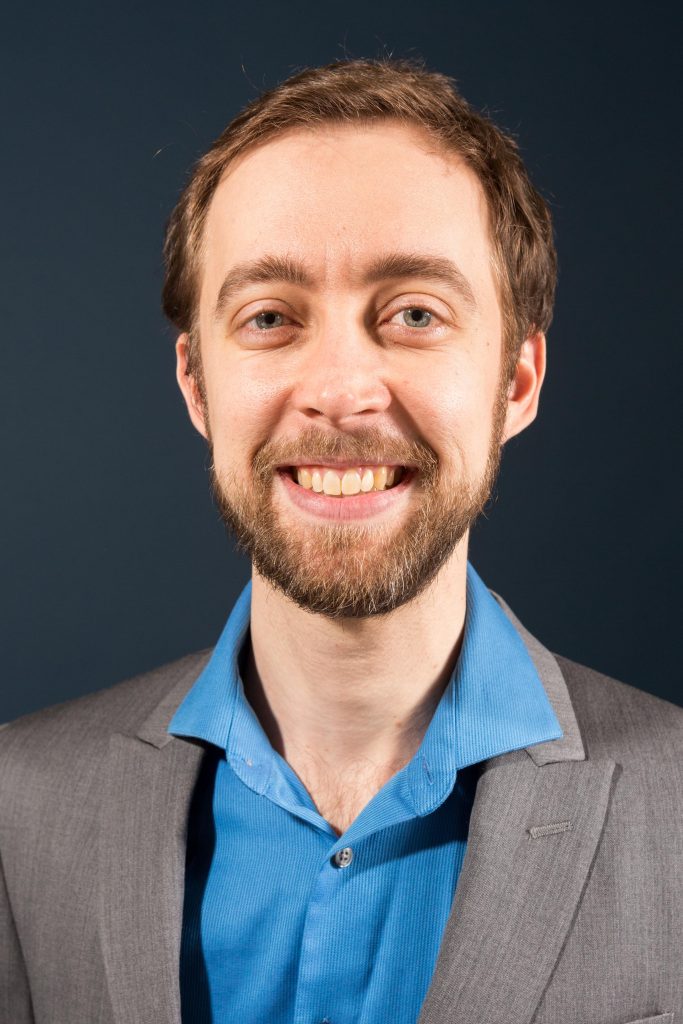
C-VILLE Weekly: What’s good in the world of tech these days?
Marty Weiner: You’ve probably seen that artificial intelligence is having a bit of a revolution. But six months ago, most of it wasn’t even there. It is evolving by the second. So, how can we build a better community with AI? There are a million topics we could discuss, but I think what is most interesting to techies and general folks is what’s going on with ChatGPT and stable diffusion.
And what is going on with ChatGPT exactly?
Right now we think of it as being about text, but with stable diffusion, it can do things like take in text and give you an image. What are artists going to do? Another area is radiology. It looks like radiology as a profession might be on the chopping block, because AI is doing it better than humans. There are other models that might be able to detect certain types of cancer years in advance.
Why is this wave of AI so revolutionary?
In the ’60s and ’70s, we first started thinking about AI being a “thing that thinks.” But up until the last six months or so, that was really just sci-fi. For example, when Furbies came out in 1997, people thought the toys were able to learn language. But they weren’t really learning; they were simple computers with simple source code. Still, people perceived these things as being smart. The Pentagon even disallowed Furbies in the building. ChatGPT, on the other hand, is an intelligent thing, a thing that reasons. When you talk about artificial general intelligence, AGI, we move into some interesting areas. We don’t even understand consciousness as a species, and I don’t know what this all means for sure, but AGI offers reasoning and awareness and maybe even needs and wants.
What does this all mean for our communities?
I am fascinated with equity in AI. I come from Reddit, so I’m always thinking about how you build giant communities at scale. How do you allow them to grow while stopping abuse? AI can help people identify at massive scale how to build the community they want. AI data is also a fascinating area. With data, you can do some great things, but you can also do some awful things.
Should people be concerned that AI is going to take their job?
A wild difference between this and, say, the industrial revolution, is that areas like coding are more at risk than craftsmen like plumbers. I’m a coder, and while I don’t see my job going away just yet, AI is making us more efficient, and now maybe you don’t need six engineers, you need five.
You’re new to Charlottesville. What are your thoughts on the local tech community?
I’m an engineer, and my wife is an engineer. We wanted to move away from the Bay Area, and we put all the features of various cities in a spreadsheet. It landed us between Connecticut and Virginia, and Charlottesville seemed like such a nice place. I actually didn’t investigate the tech community before we came. But I started meeting all the tech folks in the area—that’s how I got involved in Tom Tom—and there are some cool startups. I think there are a couple challenges for the local startup community, like a lack of venture capital at certain sizes, but I’d like to help work on them.
Martize Tolbert
Director of Client and Community Engagement, The Fountain Fund
Conference Section: Society & Justice

C-VILLE Weekly: What’s the key to a more just society?
Martize Tolbert: Oh wow. Well, I focus on financial access, financial empowerment, credit building, and coaching, specifically for formerly incarcerated individuals. I want to let stakeholders and community partners know what’s out there. I want people to partner with each other and advocate for each other. In this Tom Tom forum, basically we’re just getting the word out, letting people understand that we all face challenges and struggles, and we can come together and partner because of it.
How did you get involved with The Fountain Fund?
I was formerly incarcerated myself. I was born and raised in Detroit and destined to the struggle. I thought that was the everyday lifestyle. It wasn’t until I got to Virginia, got in trouble, did six years—and a couple more stints after that—that I realized I needed to make things I wanted to happen happen. I had to ask for help, because it was bigger than just me. There weren’t many resources available at that time. That’s when The Fountain Fund came along. I was the first loan recipient; now I’m the national director.
What are some of the barriers formerly incarcerated individuals face in accessing loans?
A theme for me and my loan officers is GSD. We get shit done. Not only with our client partners with lending, but also with hope and opportunity. It is more than just money. People also need access to childcare and employment. If they don’t have these things, they can’t come back and be a part of our community. That’s why I signed on as a Tom Tom board member. I always thought it was more about bringing outside people to Charlottesville, but I talked to Paul [Beyer], and we’re trying to change that.
What’s the local environment for the formerly incarcerated?
If you look at Charlottesville now and 20 years ago, it is completely different. We still have a long way to go, but I was here, so I know how hard it was. There are better chances to get home and get on your feet than when I got out of prison. What’s important is that we help the formerly incarcerated get the tools they need, give them hope and opportunity, and empower people. We want folks to come home and stay home and build their community.
Juandiego Wade
Vice Mayor, Charlottesville
Conference Section: Society & Justice
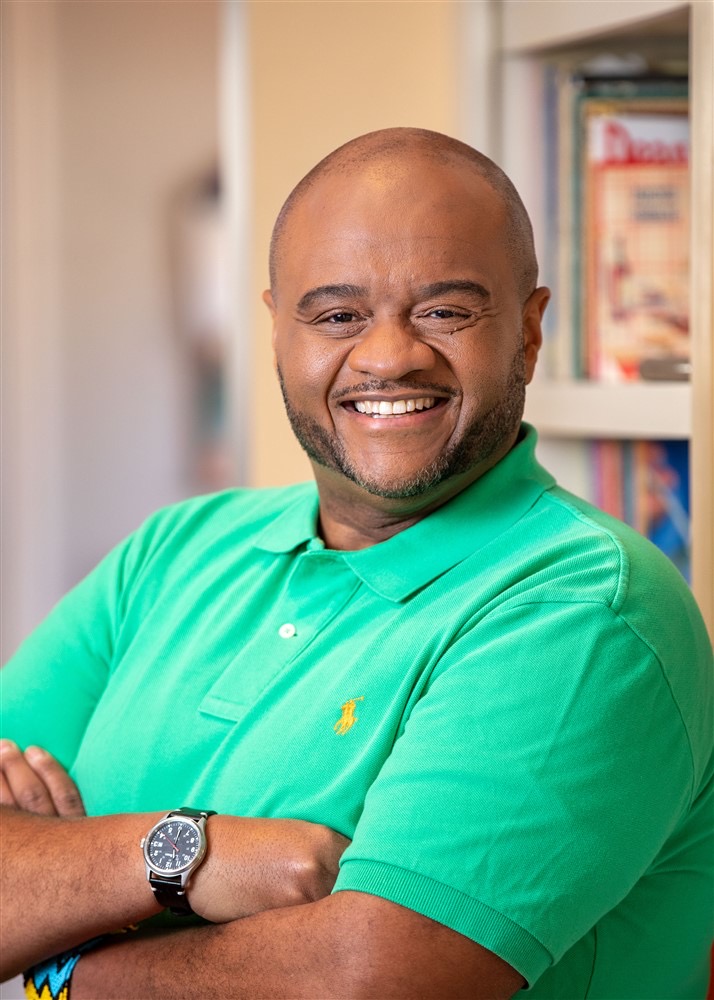
C-VILLE Weekly: What’s your vision for Tom Tom’s Society & Justice section?
Juandiego Wade: We really think it is going to be special, because the topic is pressing and pertinent for what’s going on in Charlottesville and around the country—do you feel comfortable and included in your community? … Fifteen to 20 years ago, “inclusive culture” wasn’t something people talked about.
How do we become a more inclusive culture?
Some of the things I can do now with my hat on as a city councilor is help make decisions on our public spaces. We need to make sure those spaces are as inclusive and open as possible. Community events have to be inclusive and be held at times when people can attend them. For the council, we are here for our 50,000 residents. We are here to serve everyone, not just those selected, those privileged. There are still some folks who resist inclusivity because “we never used to do it that way.” But if you want to be successful, you have to have input from different voices. We have changed. The nation has changed, and we are a diverse community.
How will your panel address inclusivity?
The title of this year’s festival is Future Forward, and the way I see that is taking ideas that we are going to be talking about in the years to come straight into action; and, getting more people involved. Future Forward is about the future of not only our community, but also our nation.
How do you answer critics who say Charlottesville is not inclusive?
I definitely can see where many might have that perception, particularly after what we’ve been through. But inclusiveness is what this community is all about. I am not originally from Charlottesville. I came here for grad school, and I just couldn’t leave. I loved it and decided to raise my family here. I know that a few instances do not define this community. I know the good it has in it.
Who should attend the Society & Justice Tom Tom sessions?
I would like to see two groups there. One is people similar to me and my level of involvement, where they can talk about what they’ve done and seen in terms of making community connections. Then I want to see those in the community that say, “I am personally or involved in a group that needs to be more inclusive.”
What does a festival like Tom Tom mean for a city like Charlottesville?
Last year at about this time, I was still in the glow of being on the council, and there was a lot on our plate. But I went to the Tom Tom event on Friday night … I thought, this is what Charlottesville is about. It was diverse: young people, old people, visitors, people in for weddings the next day, people of color, different races. The entire community was out there, just enjoying themselves.
